#Messianic Theology
Explore tagged Tumblr posts
Text
Part of what makes Christianity at large not a cult is there is no Secret Knowledge. It's all there. You can't level up.
My sister, discussing gnostic heresies
1K notes
·
View notes
Text
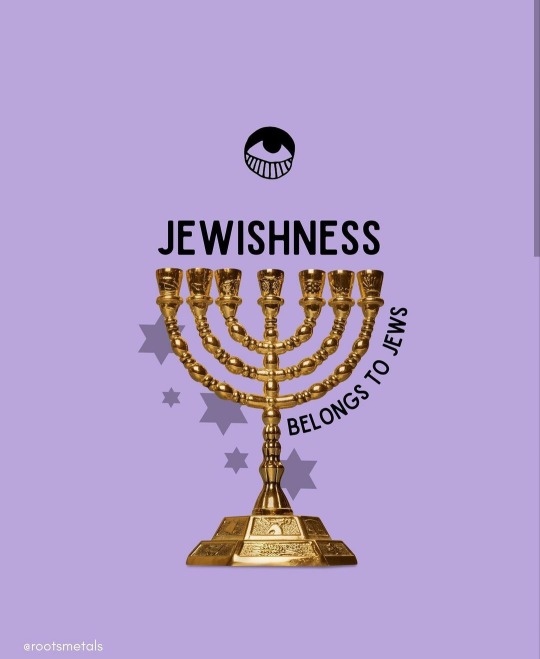
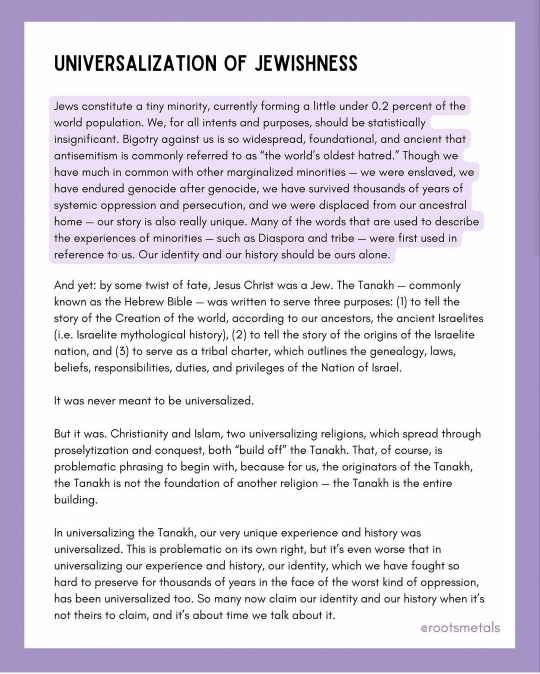
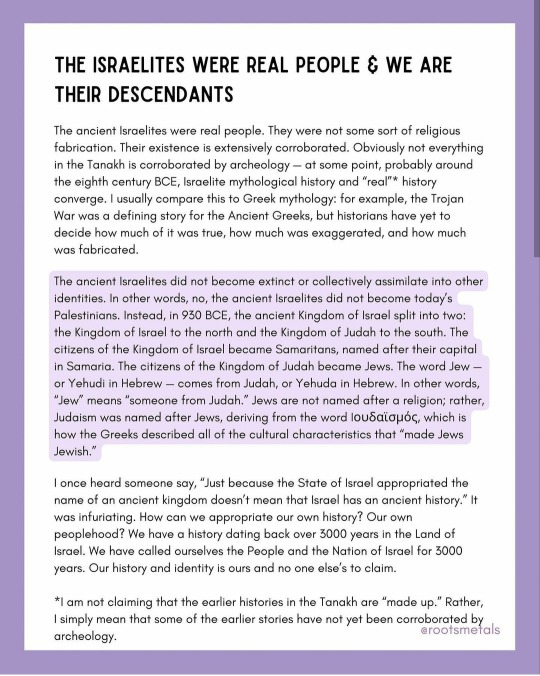
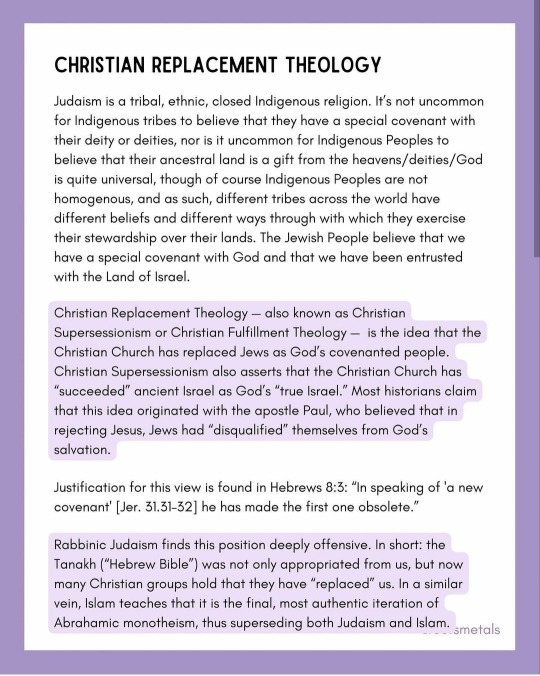
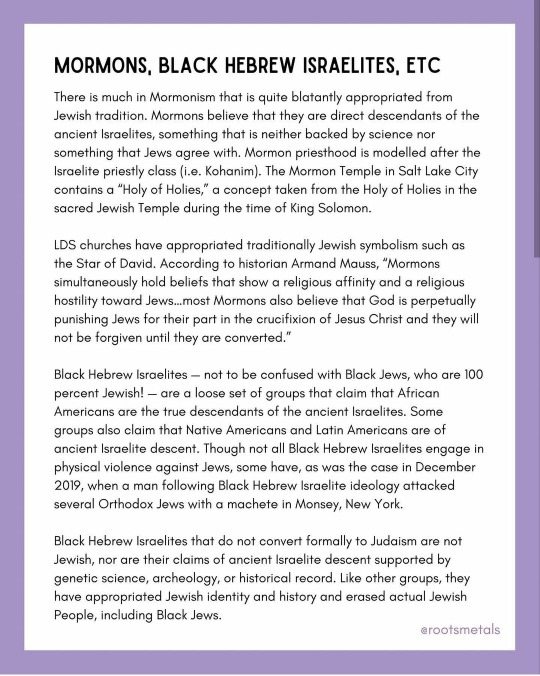

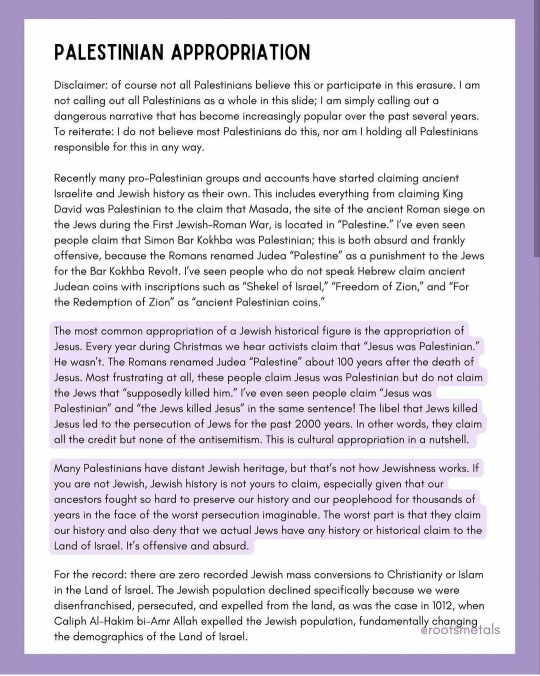


Let's talk about appropriation of Judaism, and hijacking Jewish history
"According to Halacha, Jews who abandon their Jewishness by choice become 'meshumadim' (An example being messianic "jews" of Jewish ancestry). Though Jewish by lineage, they cannot claim any privilege pertaining to Jewish status. To make it simple: if we don't claim you, you don't get to claim us."
Credit: insta user @rootsmetals
#jumblr#judaism#jewish#frumblr#antisemitism#jewish history#judaica#jewblr#jewish tag#jewish appropriation#messianic jews#christian supersessionism#bhi#christian replacement theology#mormon
1K notes
·
View notes
Text
Hey! Friendly reminder! While interfaith families exist and are great and I love hearing about the new traditions people create together, one cannot be Jewish and Christian simultaneously* (religiously speaking)! The belief systems actively contradict each other!
-signed, a very tired Jewish person
*Note that I am referring to religion-as-theology rather than religion-as-culture here
#isabel.tex#judaism#david jacobs#also related to this messianic 'jews' are not jewish.#also also. one can research this stuff. i spent ages researching Mormon/exMo culture and theology for bachelorette!Albert.#anyway thanks to longtime mutual javaberrychip98 for causing me to add that disclaimer
47 notes
·
View notes
Text
towards a post supersessionist theology and judeo-christian reconciliation
I'm writing this post as a way to set in order my own theological and spiritual beliefs, fully knowing that 1) the topic is controversial, 2) there isn't and has never been a single doctrinal interpretation within Christianity, 3) the consensus or lack of consensus Christians reach regarding the Old Covenant determines how we relate to Judaism and living Jews as a people and community.
I want to offer more than anything my own interpretations, but heavily influenced by the Hebrew Catholic perspective and tradition, in so far as "Hebrew Catholicism" is not a denomination but a set of liturgies and cultural traditions that are observed with varying degrees of personal or familial commitment, varying interpretation in themselves; it is not an unified theology.
What it is, however, is a metaphorical and literal place of both Jewish and gentile coreligionaries that, I think, makes us within the church have a singular perspective and relation to Am Yisrael, which can be used for the positive, where in the beginning of the Church, the Jewish Christians of the I Century and first Gentile Christians, these relations became volatile and led to a lot of grief. In the XXI century, however, the challenges are different- we have different factions within the Catholic Church, some still politically antisemitic, some still spiritually antisemitic, and that is worth standing against with both historical insight and conceptual-moral clarity, in the light of the Gospel and its Message of universal love.
Index of topics I want to cover.
PHILOSEMITISM
SUPERSESSIONISM
INTERFAITH AND CHURCH WORK
ON PHILOSEMITISM
Last clarification- I am not a philosemitic Christian. I am a philosemitic person, who is a Christian of a Hebrew-speaking tradition. I am only a philosemite in the etymological sense, like I can be regarded as a Philhellene because I admire Greek culture, speak Greek and participate in Greek cultural institutions. I can't be swayed by reticence or suspicion into throwing away this characterization just because other Christians have been assholes to Jews while stating their doctrine regards Jews as especial souls, or want to trigger a doomsday prophecy instead of fighting for justice.
What I see is a world where the "normal to Jews" has been disproportionate antisemitism, with a singular form of tyranny from Europeans, Islamics, etc, making specifically targeted crimes against humanity. Being "neutral" to Jews is not enough politically, that's why I am proudly philosemitic. You can't make justice by being colorblind, you can't jump to a postracial society without seeing racialized reality. You can't make justice towards Israel and Jews by being neutral about antisemitism, while not rejecting political antizionism as a proxy for current jihadism and holocaust continuism.
This is lost to many here because their entire activism is performative and not materially significant, but you need to actually love the people you are defending, in this as in any endeavor in life. You are a shitty activist if you say you defend a group but don't actually have personal relationships and positive affects towards those people.
Hebrew Catholics by definition cannot be "philosemitic Christians". Hebrew Catholics who are Jewish have a relationship of identity with Jewishness. Therefore, some Hebrew Catholics are literally, "Jewish Christians", and many identify as Christian Jews too, although obviously that is a point of controversy from people observant to Judaism that includes cultural beliefs about an ethnoreligious identity (and less controversial to more secular Diaspora Jews who don't share these cultural beliefs about Jewishness so strongly, and dissociate Judaism and Jewishness in themselves more easily).
Hebrew Catholics who are gentiles, like me, have a relationship of kinship with Jews, although not identity. A philo-whatever is a foreign admirer. I am not a foreigner to my own people- my own here meaning the Hebrew Catholics. We also, having our own worldview, make no ethnic or national distinctions. A gentile, Peruvian, Spanish, Israeli, Jewish or non-Jewish Hebrew Catholic is equally a Hebrew Catholic so long as they share the tradition and spirituality.
The Hebrew tradition is not a "foreign tradition" in the Church either, it is intrinsic, because Jewish Christians have existed since the religious doctrine was established, and could not have been established without ancient Israelite religion from which it sprang just like Rabbinic Judaism from the Pharisaic doctrines. Jewish heritage is both its basis and the substrate from which many of the polemics of Christ against what came before make sense, and cannot ever be dissociated from any doctrinal analysis.
ON SUPERSESSIONISM
To anyone less familiar with the formal definition, Supersessionism is the idea that the Mosaic Covenant, giving the moral laws of Judaism, was "replaced" by the New Covenant during the time of Christ, the Mitzvah Hadashah or New Commandment; that the Chosen People were replaced by all of humanity in God's eyes. Everything in Christianity is "New" and it can be perceived as pejorative to the "Old", but in terms of communities, the Old and the New have become contemporaneously different and cohabitate.
A lot of evil has come from the fallout and appropriation of Supersessionist beliefs by non-Jewish Christians since the times of the Roman Empire. It reduced Jews to a charicature, either to become an exemplary minority or a stained minority, but in both cases reduced to a role imposed by an external entity and ignoring the self-development of their own ancestral worldview into Judaism in the Diaspora.
The response to that fall-out has also rarely been good. One polemic against Supersessionism is that of the Messianics, which is nihilistic of Judaism, and appropriative: "Everyone is a Jew" - obviously false, even Christ made conceptual distinctions between Jews and Gentiles, he just did not make distinctions of dignity and spiritual kinship. Another response, from the resonation of captivity and exilic narratives with people who have been under the yoke of slavery, is the Black Hebrew Israelite response, which is also appropriative: "we were the Jews". Again, obviously false.
I think supersessionism has three components you can analyze separately but flow together: the spiritual component, the identitary component, and the political component.
Political supersessionism is when a usually theocratic Christian society makes supersessionist doctrine a point of argument into what Jews, in that society, are supposed to be or to be allowed to do. From forced conversions, to ghettos, to Nuremberg laws emanate from this relationship of, fundamentally, racial supremacy. Political supersessionism has no place in liberal democracy or the modern Church, that has embraced Christian Democracy over theocracy when dealing with modern society.
The identitary and spiritual components are harder to dissociate but I think this is precisely where we should imagine and build a post supersessionist theology and not fall into the previously mentioned pitfalls. I think the message of the Gospel is universal and this is not a bad thing. But the God of History in the biblical narrative, is a national God, because so far History is a History of national narratives, and Jesus Christ was a Jewish man in Judea. Jews still exist, living Jews. It is their nation. And the nation needs true allies, not condescension.
These are two spiritual truths that exist in complement and not in opposition to one another. God's Israel is Israel, the Israelites, the Jewish People, Israeli Jews and Diaspora, in biblical times as today. But he is also the King of the Universe (Adonai Elohim, Melech HaOlam), HaShem governs us all, and thus is also our Father.
This is compatible in Judaism and it is compatible in Christianity, which does share a lot with Jewish thought still. Spiritual universalism, universal values, and the national identity are not incompatible beliefs. Justice must acknowledge both. We must acknowledge Jewish indigeneity, Jewish self-determined security, and Jewish right to a national existence; not from religious beliefs, not because of supersession, but because it is the right thing to do, because this is what our world is like right now, and also, because Jewish humanity should be, WAS, the main acknowledgement of the Gospel, nothing more, and nothing less; it was a Jewish story, setin a Jewish society, with real Jewish people, and as every humanity, contains all the good and all the bad.
ON INTERFAITH AND CHURCH WORK
Dual-Covenant theology itself is another attempt to escape the supersessionist fallout which has its problems. It states that the Mosaic Covenant is still binding to Jews but that the New Covenant only applies to Gentiles. Hebrew Catholicism perhaps exposes the problems with this the best: it creates a tiered distinction of Christians, with different obligations and relationship to God depending on your ethnic origin. That is deeply unchristlike.
Hebrew Catholic congregations allow the celebration of Mosaic traditions voluntarily, depending on each personal or family's tradition, but as cultural practices and not as practices of religious observance. Some families sit Seders, others don't. It is unrelated to ethnic or national background. Instead of trying to fit Judaism into the Christian worldview, it allows Jewishness to exist, unerased, at ease and without tension, inside a Christian spiritual life. All liturgy, all rites are Catholic. It is not schismatic nor heretical.
I really think this is the best and the only way, perhaps. Everyone, every community is entitled to our own worldviews and beliefs, which include beliefs about our culture, beliefs about other people- but what we are not allowed to is imposing that on others, or dictating to others what their culture and religion and rites' significance are.
Hebrew Catholicism bridges the distance between Jews and Christians better than any other ideology, even secular ones I think, because Judaism is centric to Jewishness even to most secular Jews (Diaspora or Israeli hilonim). The way to make that bridge, is by aiming for a post-supersessionist theology and lifestyle.
What Church work could accomplish this? First, the very existence of Hebrew-speaking congregations in Israel where you show instead of telling. Just like the Druze are full members of Israeli society, we have to show that so are Christians, who to many are still associated only with antizionist Palestinians. Second, the doctrinal things I am mentioning. It is in this kind of manner that you get things like Nostra Aetate, which rebuked Jewish Deicide. Perhaps not in a decade, perhaps not under this Pope- perhaps not even in my lifetime, but I see it clearly and it is my hope that post-supersessionist interfaith relations between Jews and Christians are possible.
The descendants of Bnei Anusim, more than anyone, deserve a world in which their national, communitarian and religious identities are not at tension because of the more parochial or narrower perspectives of others. PD: whether you are a monolingual Jew or a gentile Christian, speaking to HaShem in Hebrew is beautiful. I'm not just speaking of prayer. Learn a random sentence, try it at least once! Maybe you will feel the רוח הקודש renewed.
#judeo-christian relations#judeo-christian reconciliation#anti messianic#anti supersessionist#hebrew catholic#hebrew catholicism#theology#antizionism is antisemitism
3 notes
·
View notes
Text
Ezekiel 37 Prophecy: Uniting Sacred Texts and Peoples
We aim to explore the intricate connections between this Old Testament prophecy and the teachings within the Book of Mormon. Knowing the background and context of these scriptures helps to illuminate their potential meanings and enriches our appreciation
The Prophecy of Ezekiel 37: Unveiling Its Connection to the Book of MormonCriticism of Ezekiel 37:15-17 and Its Relation to the Book of MormonUnderstanding the Two SticksEzekiel 37:15-19: Books or Sticks? From Mormonism Research Ministries – by Bill McKeever and Eric JohnsonAppraising Ministries blog – Two Sticks: Refuting the Mormon View of Ezekiel 37:15-17 by Pastor – Teacher Ken…
#Apocalyptic Language#Bible Prophecy#Book of Mormon#Christianity#David Kingdom#Eschatology#Ezekiel 37#Helaman 7-16#Jesus Christ#Literal Gathering of Israel#Messianic Prophecies#New and Everlasting Covenant#New Jerusalem#Olivet Discourse#Remnant Theology#restoration#Restoration of Israel#scripture study#Stick of Ephraim#Stick of Judah#Temple Language#Temple Liturgy#Valley of the Dry Bones
0 notes
Text
Getting a Handle On The Messiahs
I live in Silicon Valley, which as we’ve seen, has spawned people with Messiah Complexes. There’s always someone out there ready to save the world with their new solution or idea - you can check the marketing materials. And if you think you know who I’m talking about, you’re probably wrong by the odds - because we’ve got a lot of them.
I also move in spiritual and political spaces. There’s plenty of messiahs there to, ready to tell you how to save your soul and save the world., sometimes at the same time It’s the same old gig we’ve seen for thousands of years, really. Oh, and once again if you think you know who I’m taking about you’re probably wrong because of, again, the odds.
Now you may think I’m going to talk about grifters and opportunists. I am, tangentially, but I’m also talking self-proclaimed Messiahs in general. Because Messianism goes pathological if it didn’t start that way.
Think about what it takes to think you’re a Messiah. You have to believe that you are the one or a small amount of the ones who will save the planet. You have to know that it’s up to you to do everything, that you’re the linchpin of human history. You have to think you’re really special, if not touched by God or his/her immediate stand-in.
Know what you also have to believe? That everyone else is useless without you.
To be a Messiah is to know you’re special and by contrast everyone else is lesser. A Messiah may not say it, may not think it, but they must believe everyone else is lost without them. I don’t’ buy the superiority of these Messiahs, but it seems obvious many of them didn’t just buy it, they got a subscription.
In fact, to be a Messiah, you need other people to be worse than you. Messiahs are nothing without someone to save. To be the savior is to need people who need saving, and without that a Messiah means nothing. If your identity is bound up in being a Messiah, then other people automatically get a downgrade in your book.
What of those people who don’t think they need you? To many a Messiah, they’re the enemy, the disbeliever, the opponent of humanity. To get in the way of the Great Savior by not believing in them shakes up the entire Messiah’s belief system.
Being a Savior needs the saved, and needs someone to explain why the salvation isn’t happening.
This is a pretty toxic mix. You have to believe people are worse and that you’re the best or better. I also am pretty damn sure many a self-proclaimed Messiah started with the dislike of other people or increased self-regard, and then built up from there. I imagine many an honest, sincere Messiah even lost their metaphysical marbles confronting all of these psychodynamics.
Even a potential benevolent Messiah risks getting pretty goddamn pathological. I’m sure in this day and age many of the mass-media Messianic Maniacs started pathological and only went up from there - or down, depending on your viewpoint.
So no, I don’t trust Messiahs. I trust people, folks as messy as I am, hands dirty, getting busy just trying to get things done. There’s lots of those, working every day. Some of them may be legitimate Messiahs . . .
. . . but you’d never know it. And maybe it’s better that way for all of us.
Xenofact
0 notes
Text

Louis Evely, quoted in The Other Side of Silence by Morton Kelsey.
10 notes
·
View notes
Text
this is Sabbatians feasting on the corpse of Leviathan once Tikkun is completed right? That's what I got from The Books of Jacob anyway
I worship a god in the sense that a deep sea mollusc worships the whale corpse it's eating
11K notes
·
View notes
Photo
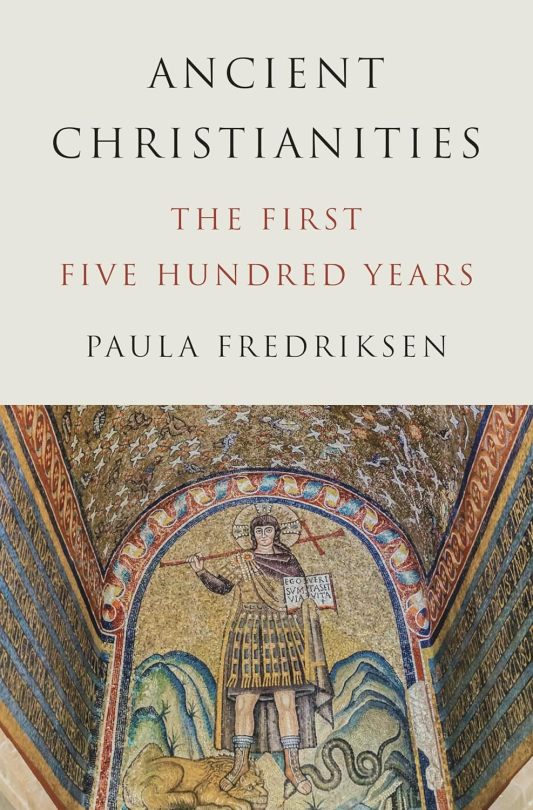
Ancient Christianities: The First Five Hundred Years
Paula Fredriksen is an eminent figure in the field of early Christianity and ancient Judaism, and her knowledge of the historical and religious circumstances surrounding these faiths is well-established. Her writings are essential reading for those curious about how religion, history, and culture interacted in the ancient Mediterranean.
Ancient Christianities: The First Five Hundred Years by Paula Fredriksen conveys precisely written ideas from the result of meticulously analyzing a great deal of historical data. Different branches of Christianity emerged simultaneously in reaction to a flourishing Judaism and an established religion that was not dead but was instead referred to as "paganism" by Christians. By delving into the subject of ancient "Christianities," new light is shown on the religious practices of the ancient cultures of the Mediterranean and the Middle East during the latter 200 years of the 1st century CE. Christian, Pagan, and Jewish faiths are discussed. The book itself contributes significantly to the history of Christianity and explores aspects of other religions.
Paula Fredriksen is a historian of early Christianity and William Goodwin Aurelio Professor of Scripture at Boston University. Early in her career, Fredriksen published writing on topics such as Christian antisemitism, Judaism, and Christianity. Now, in Ancient Christianities, Fredriksen traces the history of Christianity in the ancient Mediterranean from its nativity up to the 5th century. Throughout history, many people believed in the figure of Jesus transforming countries into monotheistic societies, and Fredriksen provides incalculable depth and insight into this process.
From its beginnings as a messianic sect within Second Temple Judaism to its ultimate inclusion into the late Roman imperial government and rise to prominence in the Western world following Roman rule, Fredriksen emphasizes the whole historical trajectory of Christianity from the 1st through 7th centuries. She ties together the intricate network of interactions among supernatural beings, the celestial bodies, spirits, and prophetic forces existing in the ancient "flat-disced" Earth and geocentric universe as well as the many ways in which the Pagan, Jewish, and Christian occupants of the Mediterranean interacted with these beings.
Fredriksen imparts her profound understanding of the history of Christianity and how the doctrines of the Abrahamic faiths have evolved through the ages in clear and understandable writing. In her view, the history of ancient “Christianities” is more deep and nuanced than previously thought, and she intends to "introduce the reader to the complexities and ambiguities, the ironies and surprises and the twists and turns" to reveal this. If you ask Fredriksen, the Christian faith does not have its roots just in Jesus, there is more to the origin story. Through her writing, she hopes to convey the idea that a "large cast of characters" is responsible for shaping modern religion.
According to her, the narrative and development of "Christianities" encompasses a wide range of characters, including aristocratic patrons, eccentric ascetics, gods, devils, angels, magicians, astrologers, and regular folks. The author examines the gradual conversion of numerous non-monotheistic faiths to monotheism over several centuries, drawing parallels and differences across various ethnic and theological traditions.
Theology, Israel, the impact of social factors including diversity, the necessity for governmental control, and persecutions on the development of Christianity are all covered in depth in the chapters that follow. Further discussions touch on the various regions impacted by the Second Temple Matrix, the connections between Jews and pagans, and the incorporation of Jewish people and culture into Greco-Roman civilization.
Historians, theologians, and anyone interested in the origins of one of the world's largest religious groups would benefit from reading this book, which focuses on the transition of Israel and the Jewish message of the end of time to the emergence of different gentile Christianities. With her unconventional viewpoint and extensive knowledge of the subject, Fredriksen offers readers an opportunity to learn something new. Fredriksen has been an excellent resource for scholars of global religions for decades, and her work is truly unique and rich in history; as a result, this is a recommended book. For further reading materials, readers would find Bart D. Ehrman's The Triumph of Christianity: How a Forbidden Religion Swept the World (2018) and Diarmaid MacCulloch's Christianity: The First Three Thousand Years (2009) to be suitable companion reads.
Continue reading...
56 notes
·
View notes
Note
When and where did you first learn about Christianity, and when and why did you decide to become Christian?
I didn't actually start learning about religion seriously until in high school when one of my relatives told me he was a Catholic. As a Muslim, I had no clue about Christian theology at all. So I watched YouTube videos, read "The Case for Jesus" by Brant Pitre (which is a 5/5 book), and the Bible. However, once I started going to Mass with him and being near the presence I think that was the final nail in the coffin and eventually led me to believe. For me, the strongest argument is the fact that there's strong historical evidence for Christ's ministry and the crucifixion -it's difficult to deny it happened. It also doesn't make sense to me that a prophet would come 600 years later if Jesus made it clear he was completing the Messianic prophecy to the Jews - which has a lot of basis in the Jewish books. I could go on with a lot more arguments.
But in conclusion, the historical arguments are the strongest reasons for pushing me towards becoming a Catholic. I was baptized and received all of my sacraments this year. Thank you for asking!
69 notes
·
View notes
Text
During the medieval ages and the witch hunt era, the official stance of the Catholic church was actually "magic is not a thing, demons can't harm you, would you please stop persecuting people on trumped-up grounds," which seems perfectly reasonable given the environment at the time.
I think the piece that many Christians forget is that this is not something to be afraid of. We are defended by the blood of the Lamb. Magic, even real demonic magic, can't touch us. If we're being oppressed by spiritual beings, we can kick them out. Sometimes it takes some discernment and repentance, but it's not hard to do because Yeshua (Jesus) has already won the battle.
The moral of the story, ladies and gentlemen and others, is "Good guys win, bad guys lose, and, as always, Yeshua prevails!"
Western Christians have been avoiding this because it makes us look primitive in the eyes of unbelievers, but we should be the first to say “yes, magic is real, magic has power, magic often does just what the practitioner says it will, but it is animated by demons and the practitioners are not the ones in control” because I guarantee our brothers and sisters in the third world will say it without hesitation
1K notes
·
View notes
Text
Okay so I know we are reasonably past Chanukah this year, but guess who decided to rewrite the final verse of Rock of Ages to better fit my theology?
(the main example of the second verse I could find was from a proud messianic, so...)
Anyway here it is:
מָעוֹז צוּר יְשׁוּעָתִי לְךָ נָאֶה לְשַׁבֵּחַ
תִּכּוֹן בֵּית תְּפִלָּתִי וְשָׁם תּוֹדָה נְזַבֵּחַ
לְעֵת תָּכִין מַטְבֵּחַ מִצָּר הַמְנַבֵּח
אָז אֶגְמֹר בְּשִׁיר מִזְמוֹר חֲנֻכַּת הַ��ִּזְבֵּחַ
Rock of Ages let our song, praise Thy saving power;
Thou amidst the raging foe, wast our sheltering tower.
Furious they assailed us, but Thine arm availed us,
And Thy Word broke their sword, when our own strength failed us.
And Thy Word broke their sword, when our own strength failed us.
Children of the remnant few, whether free or fettered,
Holding to our Covenant true, wherever we may be scattered.
Ours, the truth ascending, that the golus is ending.
And we'll see our people freed, tyrants disappearing.
And we'll see Moshiach lead, tyrants disappearing!
21 notes
·
View notes
Text
The Song of Song's is sensual!!!1!
The Song of Song's is spiritual!!!!1!
The song of songs is spiritual and sensual, and literal and allegorical, and dreamy and passionate, and mystical and earthly, and erotic and pure, and romantic and abstinent, and idealistic and realistic, and pastoral and political, and religious and relatable, and historical and messianic.
And a failure to understand that all of these things are simultaneously true and are not opposites nor contradictions, is a failure to understand this book. And it's a book worth understanding. This book reverses the Fall of the (G)arden. It is Paradise Restored. It is the healing of the relationship between humans and humans, between humans and The Divine, and between humans and nature.
I repeat, a failure to understand this, is a failure to understand this book. Now go read it!
Also, one final thing: no, The Song of Songs is not in conflict with "Pauline Theology" (goodness I hate that phrase). In fact both the author of Songs and Paul are both dedicated to the same thing: healing the rift between humans and each other, and healing the rift between humans and God. Part of understanding the Scriptures is understanding that is is a commentary on itself. It all goes BACK to Genesis 1-3 (The Sublime Creation Narrative, and the (G)Arden Narrative) and FORWARD to the Messiah
#this is also why people can't understand#romeo and juliet#song of songs#song of solomon#shir hashirim#bible#christian#christianity#jesus christ#keep the faith#jesus#faith in jesus#bible scripture#faith#christ#the bible project#romeo and juliet aesthetic#biblical feminism#love poetry#love poem#progressive christianity#progressive christian#queer christian#song of songs core
32 notes
·
View notes
Note
I’d like to add that Christianity also directly contradicts the Jewish concept of G-d. Within Judaism, G-d is a singular being that can not be split into distinct parts nor is more than one. A prayer that is incredibly important to Jewish life and culture, the (first verse of the) Shema, is an excerpt from Deuteronomy 6:4: “Hear O Israel, the L-rd is our G-d, the L-rd is one.” This prayer is said during morning and evening prayers every day, and is customary to be said when one’s death is surely certain. The concept of the trinity (Jesus Christ, the Holy Spirit, and the L-rd) directly opposes the Shema, Rabbinical teachings, and Jewish theology.
Sorry if this is dumb but I still don't understand why Christianity is incompatible with Judaism. Like what exactly about it? I don't mean to bother you too much since you already seem to get a lot of asks so you don't have to respond to this one lol
the biggest incompatibility theology wise is that the jewish messiah has not arrived yet. the christian messiah has. (the concept of a messiah is also very different in judaism vs christianity, which i can expand on more eventually.) the christian “new testament” according to christian theology essentially makes the jewish “old testament” obsolete (though the tanakh is not the same as the old testament, despite the fact some of the contents overlap). christianity since its inception has rejected judaism, so christian theology is often in direct opposition to jewish theology.
#shaelleom#judaism#shema#jumblr#jewish#jewish convert#giyur#rabbi#noahidism#jewish culture#jewish stuff#jewitches#jewitch#theology#jewish theology#christian theology#messianic judaism#rabbinical#torah#tanakh#monotheism
61 notes
·
View notes
Text
Dalish religion around DATV time
I've been meaning to write this a long time ago, and here I am:)
Firstly, some points I need to make clear:
1. I don't agree with the question "What happens if our divine beings actually exist?". It is a question asked through agnostic lenses. The very starting point of faith is the fact that divine beings do actually exist. The new modus of interaction with the world, however, might be a big surprise for many reasons.
2. Very few fictional settings managed to create a full fledged religious systems of their own, DA is not one of them. It heavily relies on real world religions so that our brains can fill in the blanks with our experiences.
So. The question I see for the Dalish is:
How can our religion cope with the fact that some gods from our pantheon are running amok spreading the Blight?
I prefer this one to "are our gods evil?", cause we don't know anything about ethics and morality in Dalish religion. My bet is on a system where questions of good or evil just do not apply to gods. They do what they do based on their spheres of influence.
But one things they are definitely NOT supposed to do is spreading the Blight.
What answers might be here? I think that Dalish religion can adapt in one way: to work around the fact that these are the actual gods.
It can lead to an upsurge of mysticism in the Dalish, and some complex theologies, like:
- We do not follow actual material beings. There are transcendent places beyond the Veil, where true essence of our gods reside, and it is these essence we believe in, and here we introduce some new practices for this new understanding (dalish becoming gnostics).
- There is the Maker, who first sent the Evanuris to the elves, but they were corrupted. They then send Mythal again - as Andraste - for humans, but this too does not work out. We are waiting for some new figure (dalish becoming messianic)
Or Dalish can just revise the stories, like:
- There was a war with the forgotten ones, and in this war Elgar'nan and Ghilan'nain were killed. Forgotten ones assumed their identities and tricked other Evanuris, and these guys we are currently seeing are not actually our gods. By following these two we remember their sacrifice.
- Or even, all our gods were killed in the war. Mythal and Fen'Harel imprisoned only the forgotten ones. Or these two were going to do this, but at the last moment Fen'Harel betrayed Mythal. This produces rather bleak reality, but still viable.
The most fascinating variant is if all these ideas take root in various places or among different Dalish, and the religion just fractures - perhaps temporarily, to then reconcile it into one very different religion.
11 notes
·
View notes
Note
do you have any suggestions for material that approaches theology with marxist thought? i Have gone through liberation/womanist theology stuff but none that so explicitly called itself marxist
you might enjoy critical theory if you're not already familiar. none of these writers are theologians or even theists, but they are strongly influenced by marxism and i find they fill in the gaps of theology where i wish for more marxism. they radically reshaped my theology even as they are highly critical of institutional christianity and i strongly recommend them.
dialectic of enlightenment: critical theory and the messianic light by jacob klapwijick (good introductory primer)
negative dialectics by theodor adorno
"the dogma of christ" by erich fromm
max horkheimer's "theism and theism" and "religion and philosophy"
herbert marcuse's an essay on liberation
everyone i haven't directly linked can be found in this book.
you've mentioned you went through some womanist/liberation theology: the thing with both theologies is that, particularly for catholic theologians writing in the 1980s, there was a real danger to explicit marxism. marxism is atheistic: anyone utilizing marxist rhetoric or calling themselves marxist jeopardized their safety and inclusion, especially during the reagan administration, so liberation theologians like guiterrez were actively either shunned or discouraged from being "too marxist." i won't recommend their work again, but i strongly encourage you to reread them after engaging in some critical theory- my experience of liberation theology was radically changed by doing this, since liberation theology finds its origins in critical theory. additionally, you might be interested in:
the long loneliness by dorothy day
in the vale of tears: on marxism and theology by roland boer
class struggle in the new testament by robert j miles
christian socialism: an informal history by john cort
all things in common: the economic practices of the early christians by roman a. montero
prophetic encounters: religion and the american radical tradition by dan mckanan
speak truth to power a quaker search for an alternative to violence by bernard rustin
the life and work of camilo torres restrepo, dorothy day, benard rustin, and simone weil
i like this article a lot too
this is a bit all over the place, but it might be helpful for starting off- and again, i encourage you to reconsider liberation theologians, especially gustavo gutierrez, marcella althaus-reid, and james h cone. they are easily the most important thinkers for liberation theology and all of them are driven deeply and intrinsically by marxism even if they don't write explicitly about it. you might also like sallie mcfague: i recommend the body of god: an ecological theology and life abundant: rethinking theology and economy for a planet in peril.
55 notes
·
View notes